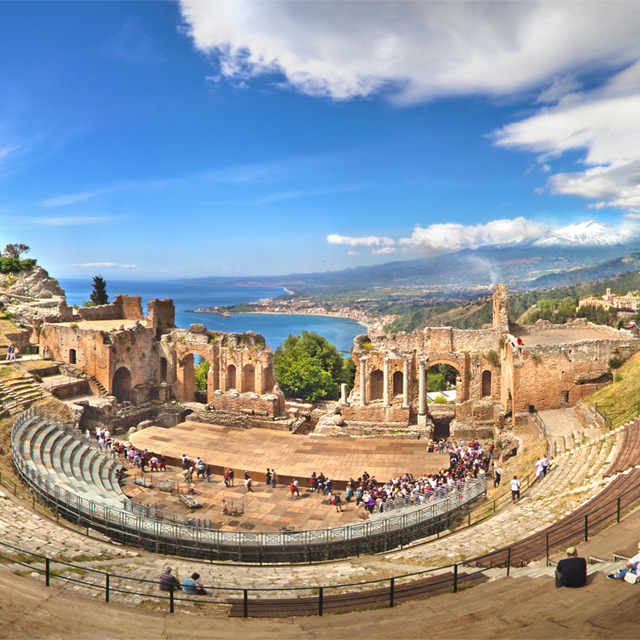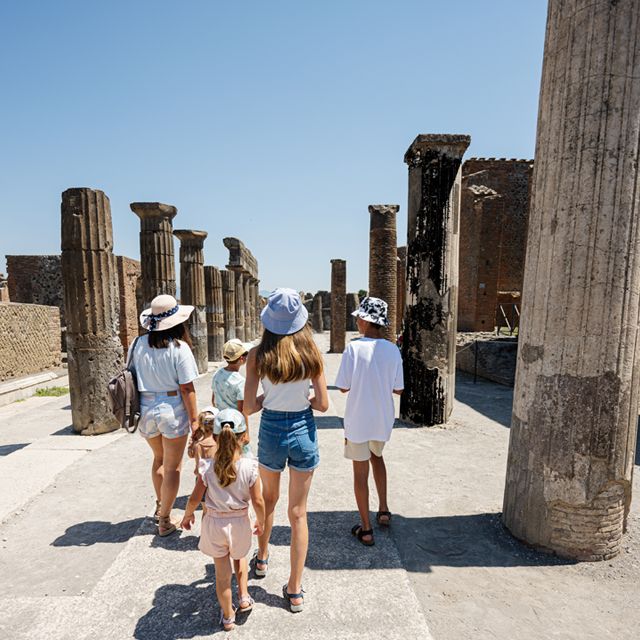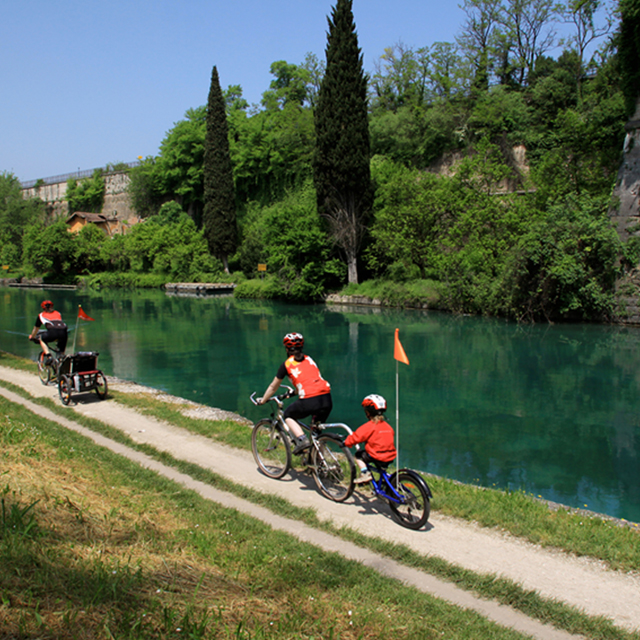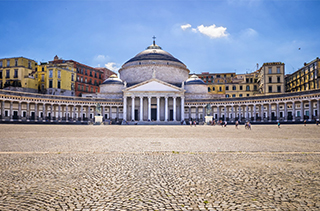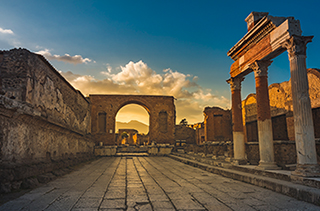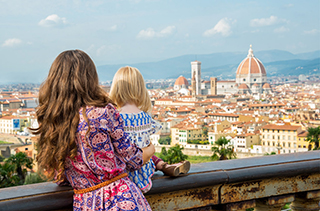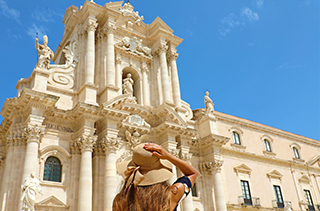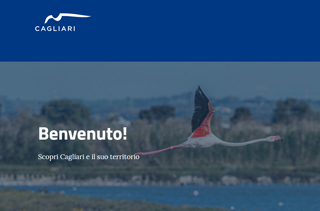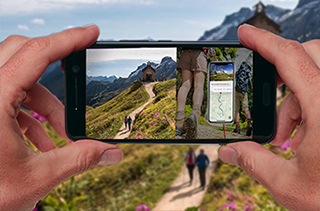Home / Digital Change / Culture, Tourism & Sports
Culture, Tourism & Sports
Culture, Tourism & Sports
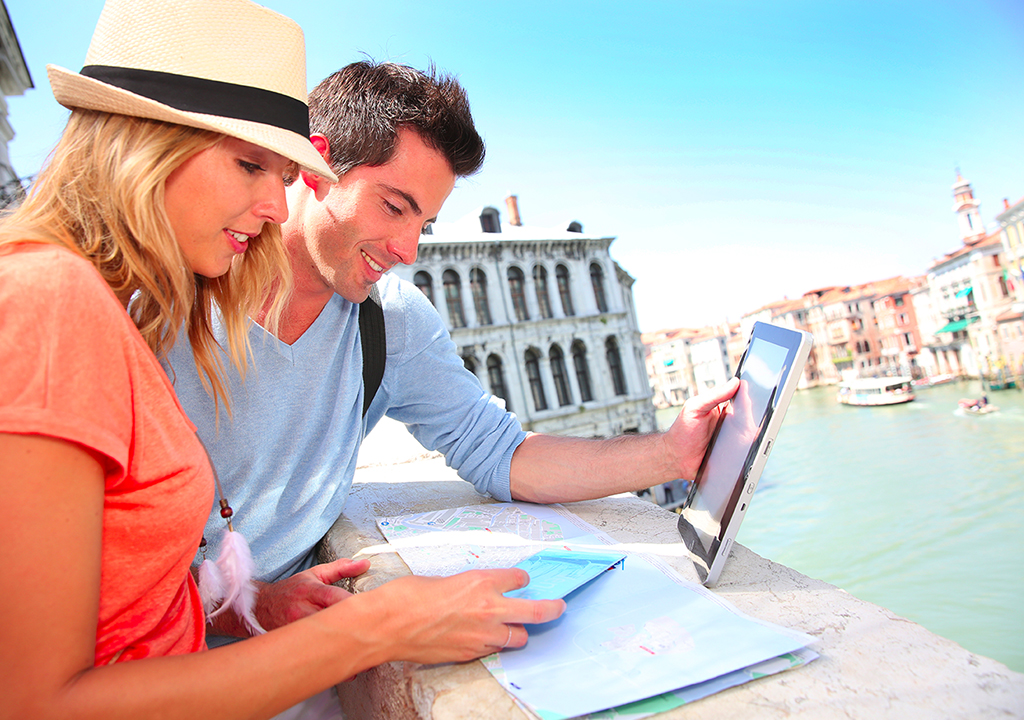
Culture, Tourism & Sports accessible to everyone
Almaviva Group has always invested in technology, research, innovation, platforms, expertise, and strategic alliances to make the value of information increasingly tangible and accessible, contextualized and enhanced according to the perception and needs of the user, client, community, and market.
The Culture, Tourism, and Sports sector plays an extremely important role in Italy's Plan for National Recovery and Resilience, which aims to revitalize Italy's cultural and touristic sites and services by leveraging the Country's digital transformation process.
The PNRR for the Culture, Tourism, and Sports sector
The PNRR includes a revitalization of the culture, tourism, and sports sector, with a focus on promoting historic and cultural sites and the various Regions by increasing their visibility, attractiveness, safety, and accessibility, in particular when it comes to rural and internal areas. The measures are intended not only for so-called “big attractions”, but also for safeguarding and enhancing less significant sites.
Additionally, the Plan includes measures for the sustainable renovation of tourist facilities and services, also taking advantage of new technologies, and for the elimination of architectural, sensory-perceptual, cultural, and cognitive barriers in museums, monumental complexes, archaeological sites and parks, archives, and national libraries:
Relaunching the tourism and culture sector with an innovative and sustainable approach to improve access to and enjoyment of tourist and cultural sites
Strengthening the competitiveness of tourism businesses
Supporting investments in environmentally sustainable redevelopment projects and improving the standards of hospitality services
Expanding the integration and unification processes among businesses in order to enhance the quality of services and reduce inefficiencies caused by sector fragmentation
Supporting the competitive capacity, resilience, and development of tourism SMEs and the services they offer through digital innovation and the use of new technologies on the part of operators
Supporting the green transition of the tourism sector
Innovation in process and data management
The application of digital technologies for the collection of data from regions and its transformation into good governance and new services, radically changes the management model of the national artistic heritage: greater efficiency, lower costs, transparent and fruitful dialogue with residents and tourists, and organized and inclusive access to historical-cultural and tourist-sports resources.
The role of technology
Knowledge of cultural assets must precede the planning of any structural intervention. Technology is a means, not an end. Though the tendency has often been to focus on the technological tool itself, as if computer efficiency could fill the content void, technology is actually there to serve and communicate content, not overpower it. The driving force is and remains knowledge.
Data creates knowledge depending on how it is structured and presented. To transform data into knowledge it is, therefore, necessary to acquire it from the various communication channels available and to use technology, systems, and applications that are capable of generating and analyzing information and interpreting it within a cultural, social, and business context:
IoT
Cloud Computing
Big Data & Advanced Analytics
Mobile Apps & Wearable Devices
CyberSecurity
Artificial Intelligence & Machine Learning
Cognitive Computing
Augmented & Virtual Reality
Remote Sensing
Almaviva approach
In Almaviva’s vision, citizens, users, tourists, or simply individuals are at the center of an ecosystem in which different resources, including structures, services, tools, and information, are always accessible and interconnected.
User-centricity
Almaviva Group is working to transform the service-centric model into a user-centric one, with a focus on integration, usability, sustainability, and inclusion, using emerging and AI-based technologies.
An integration middleware capable of supporting and facilitating communication between all of the sector’s stakeholders in order to standardize data generated by different systems.



